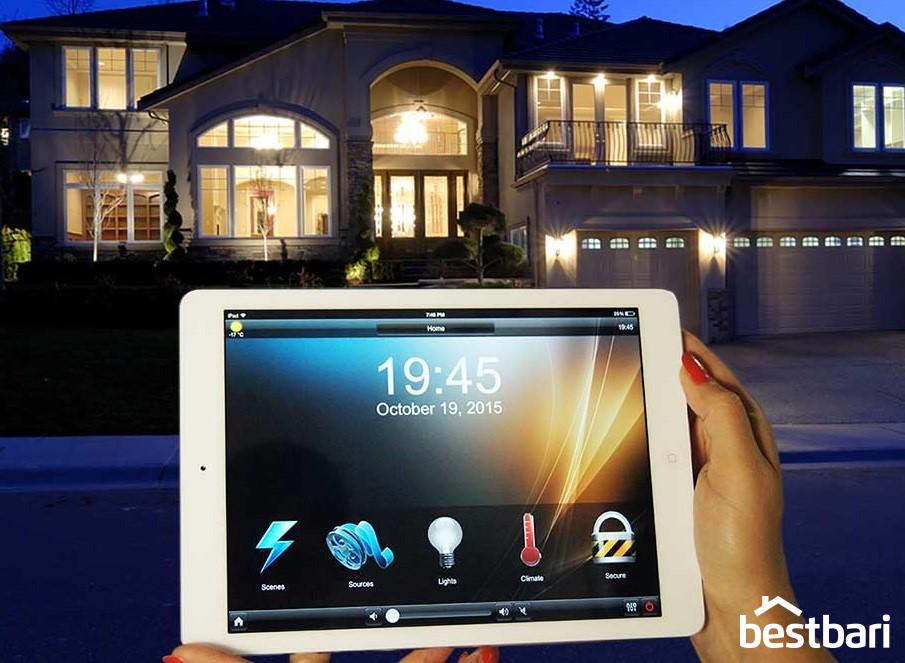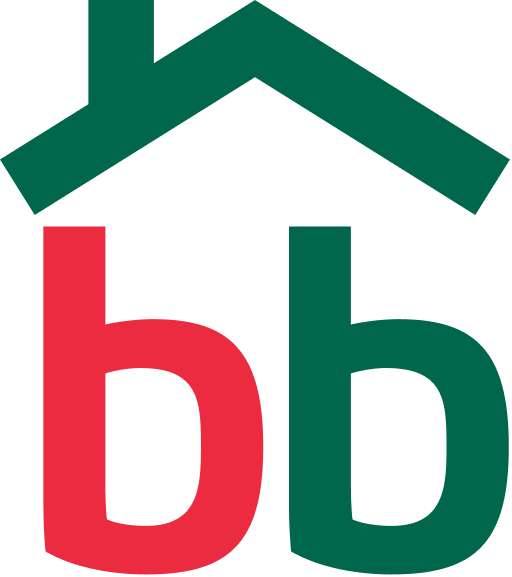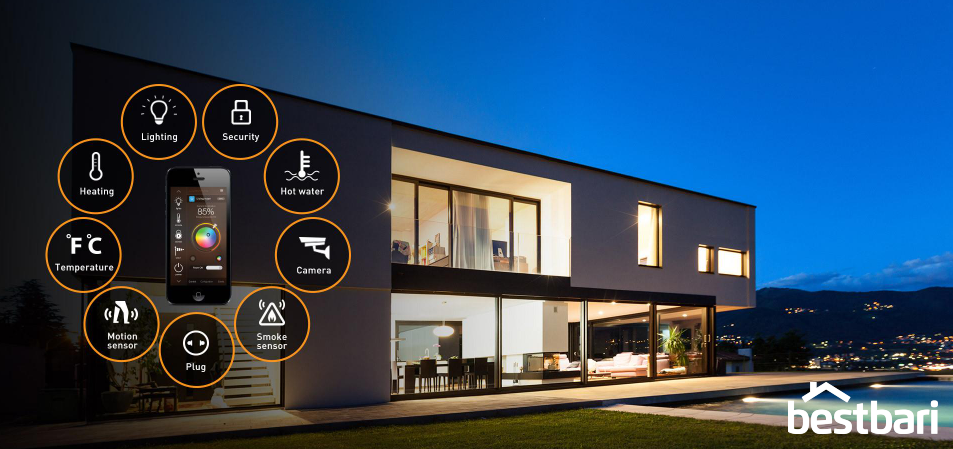Reading time: 7 minutes, Category: Property Trends
Searching for your dream flat for sale in Dhaka? Visit BestBari, an innovative online real estate company in Bangladesh.
Remember when you were a child and your mum or dad had brought home a new vacuum cleaner or even a microwave? You felt an overwhelming sense of wander and curiosity. Your parents would have looked at it differently, they knew that this device would improve their lives for the better. For instance, a microwave beeping when the food is finished cooking, the blender slicing up fruits to make a smoothie – these small inventions and innovations over time compounded and became large, interconnected ecosystems known now as ‘smart homes’ that make our lives in the home significantly better. These smart appliances and systems significantly reduced effort required, increased safety, reduce energy consumption helped save time and are becoming commonplace in new homes around the world.

The prevalence of WI-FI has connected once previous passive devices into active ones.
Smart Home Systems for BD Property
Smart homes can consist of a network connected by either hardwire or wireless signal. Installation of a wireless system is generally easier, and this can connect seamlessly to smart lighting, security systems and climate control giving you complete control over your home environment. Wireless systems required a strong Wi-Fi signal along with a robust broad-band service with wireless access points and signal repeaters spread around the house. As these are often cheap to install costs are limited and it is for this reason that wireless systems are better suited to smaller apartments and houses.
Conversely, a hardwired system is often costlier however permits greater saleability, security, and transfer speeds. Note that this type of system is known to increase the value of a home as it is often installed at the same time the home is constructed and will require dedicated wiring systems with a control room. These systems suffer less from attenuations and can serve very large areas with minimal disruption. These types of systems are therefore reserved for stately homes and large commercial premises.

Smart homes can rely on wither Wi-Fi connectivity or be hardwired directly in to the home.
Smart Heating/Cooling
Smart homes allow for immediate control over heating and cooling devices either centralised or dotted around the home. Your energy bill would be sky high if you left your AC on all day, how about if you had a system that would detect how far away from home you were in the commute and automatically switch on. Imagine how comfortable and relaxing it would feel coming home to a house on a hot summers day that’s already been cooled down.
These sorts of features can be programmed and wirelessly controlled according to your preference. These systems can also be connected to humidity and temperature sensors and can automatically adjust it to the environment, saving electricity and ensure your personal comfort despite the changing weather conditions and personal needs.
Smart climate control can segment and remotely control each zone.
Smart Lighting for BD Property
Nothing is more frustrating that laying down in bed needing to switch a light on or off. By using a tablet, mobile phone or remote homeowners can now control not only their bedroom light but the entire homes individual lights from the comfort of their bed. Smart bulbs use Wi-Fi connectivity to achieve this and can feed back metrics to your phone. Time schedules can be aligned with calendars or even synchronised with the natural light making for a seamless system that is intuitive to the homeowner’s needs.
Similarly, smart home systems can manipulate existing natural light sources through the form of automatic blinds and curtains connected to actuators that feed into the smart home server. This used with a combination of electrical lights can see houses that save more energy by leveraging natural light and modulating insulation levels by simply drawing or opening curtains. This function ensure electricity is managed effectively and reduces energy bills.

Smart lighting can bring a sense of added security before you’ve stepped into the house.
Smart Audio and Visual Systems
Multimedia rooms are often the focal point of a smart home, and most entertainment products are interconnected and are controlled by a single remote. Smart TV and Speakers have the ability to response to audio inputs and remove the need to manually type words in. These A/V systems will also synchronise with your schedule and communicate with you via your mobile to inform you of important events of shows and other metrics. They can be switched on and off and will autonomously respond to your presence. For example, if you fall asleep or leave a remove, your smart watch will notify the TV to switch off. This further enhance the energy saving aspect as TV’s are considered power intensive units

A smart multi media room will responds to your vocal commands and presence.
Smart Security Systems
As we all know, a legacy security camera is hardly a deterrent for your average criminal. This has all changed with the introduction of smart security which is one of the key benefits of a smart home. It changes the humble camera from a passive device to an active one by leveraging all the benefits of a smart home and incorporating them into your security system. Cameras can now identify, motion track and provide live notification, alerts and visual feeds directly to your phone, while lights indoors can communicate with cameras outside to switch on when there is disturbances that will startle any potential intruders and send them to the next house.
Similarly, doorbells can now provide a portal to your phone and anyone pressing the button or triggering the motion sensor will be able to communicate with you as if you have cracked opened the door when you could be in bed or even another country. This combined with smart cameras can turn a regular home into Fort Knox where nothing can get in or out without the authorities (you!) knowing.

Smart security systems use a series of interconnected sensors to keep your home safe.
Other Smart Home Features
Digital assistance and Artificial intelligence can be used in the home to open up a range of services. The devices will interact with you using your voice and can respond in kind as if you were conversing with a super intelligent human. These digital assistants will then give you updates, respond, act upon your directives, queries and organise your calendar.
For example, say you are running low on milk you could simply request to buy more. The digital assistant will purchase, pay and ensure safe delivery of the milk purchase. The entire cycle and back end is addressed by this assistant and removes the need for you to engage with other numerous tasks to achieve this goal. This assistant is also connected to a neural network which has billions of parameters so quite often will be able to predict what you are asking well before you’ve uttered a few words. This kind of artificial intelligence paired with a smart home stocked with smart devices unlocks significant synergies and advantages never previously thought.
Smart emergency alarm systems such a smoke or carbon detectors will not only sound the alarm waking inhabitants, but also send messages to your phone. They can also be programmed to send messages to emergency contacts. Say for example you live in an isolated rural area and are out of town and your kitchen catches fire. Your neighbour may be notified via text and can arrive sooner to put I out than the nearest rural fire department.
Smart gardens are another benefit where entire watering system is automated. These systems will water plants by irrigating them automatically according to the weather rather than a timer. Furthermore, they will continue to use sensors to monitor moisture content and adapt to the daily changes. This changes water consumption and ensure optimal plant growth for more sensitive varieties.
We hope you have found this article insightful about the Emergence of smart homes, If you enjoyed this guide please visit our News and Articles page, including our Dhaka Suburb Guides.














One Response